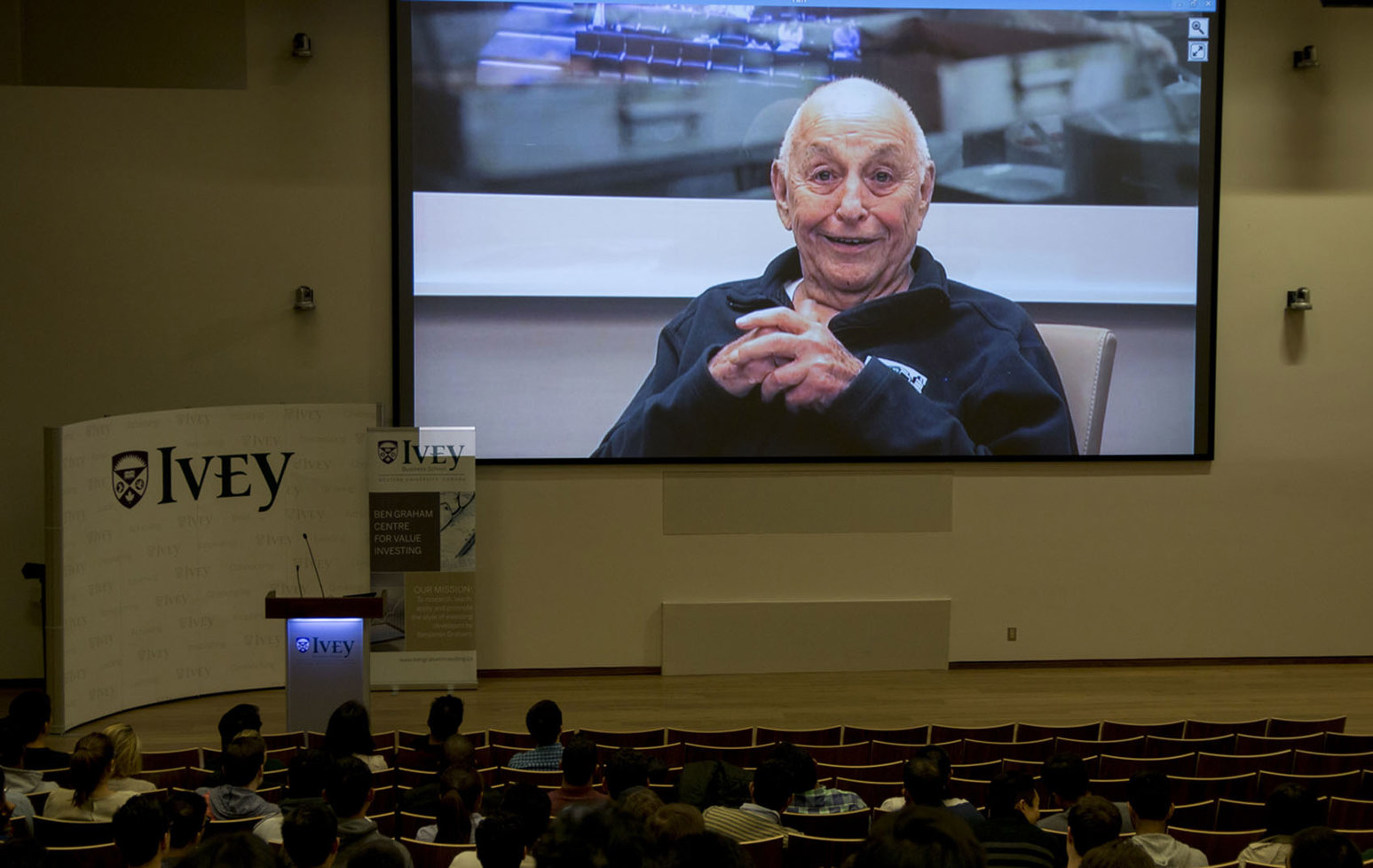It’s often said that you should look at the big picture to get a complete view of an issue. But Martin Whitman, Founder and Chairman of Third Avenue Management LLC, shuns that advice.
Instead he focuses on a bottom-up approach to investing, which involves the analysis of individual stocks and specific companies, rather than the industries in which the companies operate or the economy as a whole. This is in stark contrast to the conventional top-down approach that many investors subscribe to where they focus on big-picture elements, such as the performance of industrial sectors or the economy.
“I focus on the analysis of specific companies and securities, rather than trading or markets,” he said. “In conventional analysis it’s very hard to identify strong financial positions and long-term outlooks.”
In a presentation via videoconference to students in Professor George Athanassakos’ value investing class, Whitman stressed the importance of analyzing companies’ long-term growth prospects. He also outlined three roadblocks to such analysis:
- An emphasis on wealth-creation – Many investors are interested in companies that create wealth for their stockholders. But Whitman said it’s the potential to make money later that’s more important. You have to be patient while waiting for out-of-favour companies to rebound;
- A short-term focus and top-down approach – Don’t worry about changes in stock prices or macro-environment factors such as the Dow Jones Industrial Average, interest rates, or employment rates. These are all big-picture, short-term elements that might cause you to overlook companies with potential for growth and break from the value investor’s preferred strategy of long-term buy and hold; and
- A belief in market efficiency – Many investors believe in market efficiency meaning that, at any given time, stock prices reflect all available information. Instead, Whitman counters the market is efficient and stock prices change over time only as the market absorbs new information. So instead of looking at what the market is doing, which can rapidly change, focus only on your analysis of companies, he said.
Whitman has a track record of deviating from the pack. In the early 1970s, while working in corporate finance, he focused on stock holder litigation and bankruptcy. Although popular and profitable areas today, Whitman said, in those days, they were virtually untouched. He later decided to go into business himself and founded Third Avenue Management where he focused on investing in distressed (near or going through bankruptcy) stocks and securities.
His strategy has paid off. For more than 40 years, he has proven investors can make money from underpriced securities in companies with strong balance sheets.



